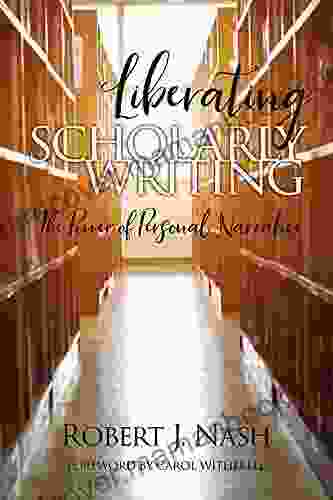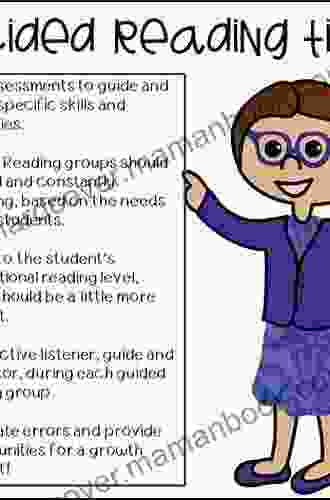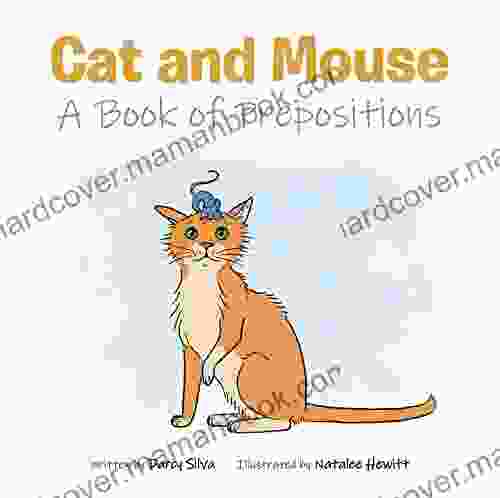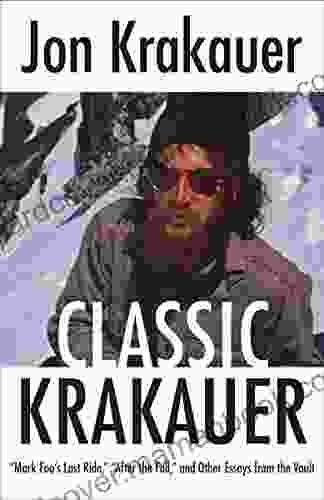Liberating Scholarly Writing: The Power of Personal Narrative

Scholarly writing is often seen as a dry and impersonal affair. But what if we could inject a little bit of our own personality into our work? What if we could share our own experiences and insights to make our writing more relatable, engaging, and accessible?
4.2 out of 5
| Language | : | English |
| File size | : | 590 KB |
| Text-to-Speech | : | Enabled |
| Enhanced typesetting | : | Enabled |
| Word Wise | : | Enabled |
| Screen Reader | : | Supported |
| Print length | : | 225 pages |
| X-Ray for textbooks | : | Enabled |
Personal narrative is a powerful tool that can be used to liberate scholarly writing. By sharing our own stories, we can make our work more human and relatable. We can also use personal narrative to challenge traditional academic norms and to open up new possibilities for scholarly inquiry.
The Benefits of Using Personal Narrative in Scholarly Writing
There are many benefits to using personal narrative in scholarly writing. Some of these benefits include:
- Personal narrative can make your writing more relatable and engaging. When you share your own experiences, readers can connect with you on a personal level. This can make your writing more engaging and enjoyable to read.
- Personal narrative can help you to develop your own voice as a writer. When you write from your own perspective, you can develop a unique and authentic voice. This voice will help you to stand out from the crowd and to make a lasting impression on readers.
- Personal narrative can challenge traditional academic norms. Academic writing is often seen as being objective and impersonal. But personal narrative can challenge this norm by bringing a human element to scholarly work. This can help to open up new possibilities for scholarly inquiry and to create a more inclusive and diverse academic community.
How to Use Personal Narrative in Scholarly Writing
If you're interested in using personal narrative in your scholarly writing, there are a few things you should keep in mind:
- Be honest and authentic. When you write personal narrative, it's important to be honest and authentic. Share your own experiences and insights, and don't be afraid to be vulnerable. Readers will appreciate your honesty and will be more likely to connect with your writing.
- Be reflective. Personal narrative is not just about telling your story. It's also about reflecting on your experiences and insights. What have you learned from your experiences? How have your experiences shaped your thinking? Share your reflections with readers to help them make meaning of your story.
- Be mindful of your audience. When you write personal narrative, it's important to keep your audience in mind. Who are you writing for? What do you want them to take away from your writing? Tailor your writing to your audience's needs and interests.
Examples of Personal Narrative in Scholarly Writing
Here are a few examples of personal narrative in scholarly writing:
- In her essay "The Personal Narrative as a Research Tool," Patricia Clough argues that personal narrative can be a valuable tool for conducting research. She shares her own experiences using personal narrative in her research on the AIDS crisis, and she demonstrates how personal narrative can help researchers to develop a deeper understanding of their research participants.
- In his book "The Fire Next Time," James Baldwin uses personal narrative to explore the complexities of race and identity in America. Baldwin shares his own experiences growing up in the segregated South, and he offers a powerful critique of the racism that continues to plague American society.
- In her essay "Why I Write," bell hooks uses personal narrative to reflect on her own journey as a writer. hooks shares her experiences with racism and sexism, and she discusses the importance of writing as a tool for empowerment and liberation.
Personal narrative is a powerful tool that can be used to liberate scholarly writing. By sharing our own experiences, we can make our work more relatable, engaging, and accessible to a wider audience. We can also use personal narrative to challenge traditional academic norms and to open up new possibilities for scholarly inquiry.
If you're interested in using personal narrative in your scholarly writing, I encourage you to experiment. Be honest and authentic, be reflective, and be mindful of your audience. With a little practice, you'll be able to use personal narrative to create powerful and meaningful scholarly work.
4.2 out of 5
| Language | : | English |
| File size | : | 590 KB |
| Text-to-Speech | : | Enabled |
| Enhanced typesetting | : | Enabled |
| Word Wise | : | Enabled |
| Screen Reader | : | Supported |
| Print length | : | 225 pages |
| X-Ray for textbooks | : | Enabled |
Do you want to contribute by writing guest posts on this blog?
Please contact us and send us a resume of previous articles that you have written.
 Top Book
Top Book Novel
Novel Fiction
Fiction Nonfiction
Nonfiction Literature
Literature Paperback
Paperback Hardcover
Hardcover E-book
E-book Audiobook
Audiobook Bestseller
Bestseller Classic
Classic Mystery
Mystery Thriller
Thriller Romance
Romance Fantasy
Fantasy Science Fiction
Science Fiction Biography
Biography Memoir
Memoir Autobiography
Autobiography Poetry
Poetry Drama
Drama Historical Fiction
Historical Fiction Self-help
Self-help Young Adult
Young Adult Childrens Books
Childrens Books Graphic Novel
Graphic Novel Anthology
Anthology Series
Series Encyclopedia
Encyclopedia Reference
Reference Guidebook
Guidebook Textbook
Textbook Workbook
Workbook Journal
Journal Diary
Diary Manuscript
Manuscript Folio
Folio Pulp Fiction
Pulp Fiction Short Stories
Short Stories Fairy Tales
Fairy Tales Fables
Fables Mythology
Mythology Philosophy
Philosophy Religion
Religion Spirituality
Spirituality Essays
Essays Critique
Critique Commentary
Commentary Glossary
Glossary Bibliography
Bibliography Index
Index Table of Contents
Table of Contents Preface
Preface Introduction
Introduction Foreword
Foreword Afterword
Afterword Appendices
Appendices Annotations
Annotations Footnotes
Footnotes Epilogue
Epilogue Prologue
Prologue Heather Webb
Heather Webb Dora Charles
Dora Charles Sean Rubin
Sean Rubin Kiki Prottsman
Kiki Prottsman Revised Edition Kindle Edition
Revised Edition Kindle Edition Douglas W Tallamy
Douglas W Tallamy Dan Chiasson
Dan Chiasson Terra Weiss
Terra Weiss Rae Pica
Rae Pica David G Schwartz
David G Schwartz Shelly Sanchez Terrell
Shelly Sanchez Terrell Stephen Spender
Stephen Spender F Scott Fitzgerald
F Scott Fitzgerald Lee Sheldon
Lee Sheldon James Joyce
James Joyce Diane Lockward
Diane Lockward Ben Tallon
Ben Tallon Stephanie Corfee
Stephanie Corfee Rachel Dodman
Rachel Dodman Kelly Keaton
Kelly Keaton
Light bulbAdvertise smarter! Our strategic ad space ensures maximum exposure. Reserve your spot today!
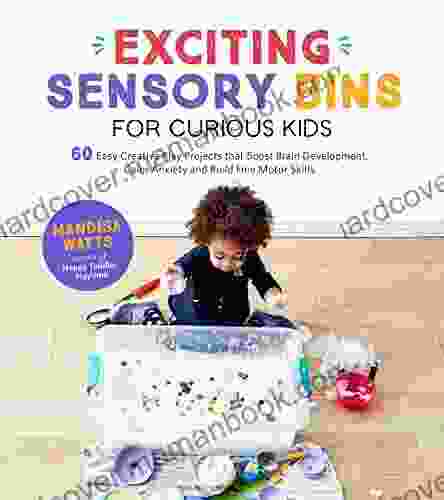
 Matthew Ward60 Easy Creative Play Projects That Boost Brain Development, Calm Anxiety,...
Matthew Ward60 Easy Creative Play Projects That Boost Brain Development, Calm Anxiety,...
 Cruz SimmonsThe Ultimate Guide to Investing in the Stock Market and Achieving Financial...
Cruz SimmonsThe Ultimate Guide to Investing in the Stock Market and Achieving Financial... Bruce SnyderFollow ·18.7k
Bruce SnyderFollow ·18.7k Dustin RichardsonFollow ·11.3k
Dustin RichardsonFollow ·11.3k Oscar WildeFollow ·9.1k
Oscar WildeFollow ·9.1k Tim ReedFollow ·15.6k
Tim ReedFollow ·15.6k Dan BellFollow ·7.6k
Dan BellFollow ·7.6k Spencer PowellFollow ·18.2k
Spencer PowellFollow ·18.2k E.M. ForsterFollow ·11.2k
E.M. ForsterFollow ·11.2k Hank MitchellFollow ·3.9k
Hank MitchellFollow ·3.9k
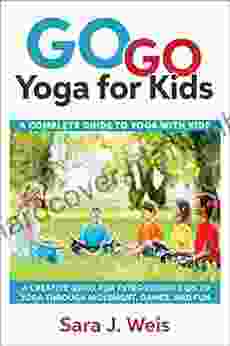
 Eugene Powell
Eugene PowellComplete Guide to Using Yoga With Kids: Benefits, Tips,...
Yoga is an ancient practice that has been...

 Benji Powell
Benji PowellHow to Make $000 Per Week on Craigslist
Are you looking for a way to make extra money...

 Gabriel Garcia Marquez
Gabriel Garcia MarquezGrocery Row Gardening: The Exciting New Permaculture...
Kick-start your gardening journey with the...
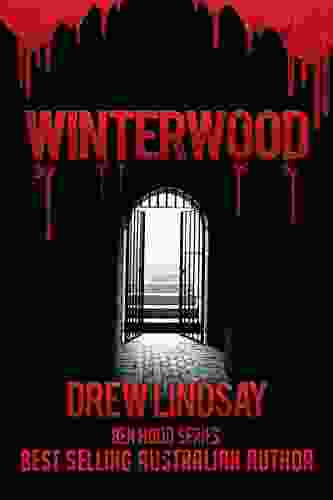
 Hayden Mitchell
Hayden MitchellUnveiling the Gripping World of Winterwood: Ben Hood...
In the annals of crime thrillers, the...

 E.M. Forster
E.M. ForsterThe Financial Advisor Guide To Managing and Investing...
As a financial...
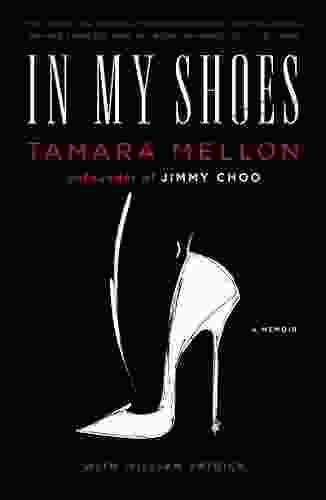
 Lee Simmons
Lee SimmonsIn My Shoes Memoir: A Poignant Journey of Resilience,...
In the tapestry of life, adversity often...
4.2 out of 5
| Language | : | English |
| File size | : | 590 KB |
| Text-to-Speech | : | Enabled |
| Enhanced typesetting | : | Enabled |
| Word Wise | : | Enabled |
| Screen Reader | : | Supported |
| Print length | : | 225 pages |
| X-Ray for textbooks | : | Enabled |


